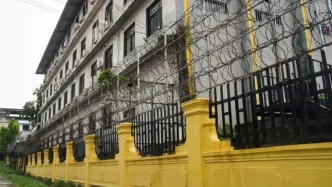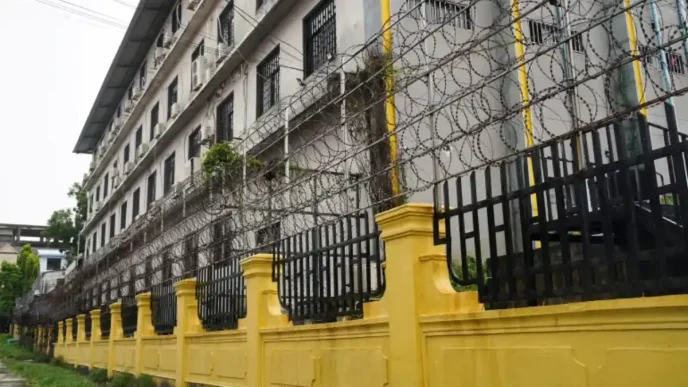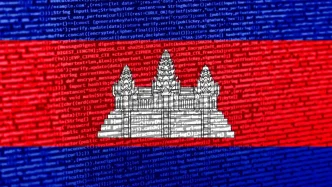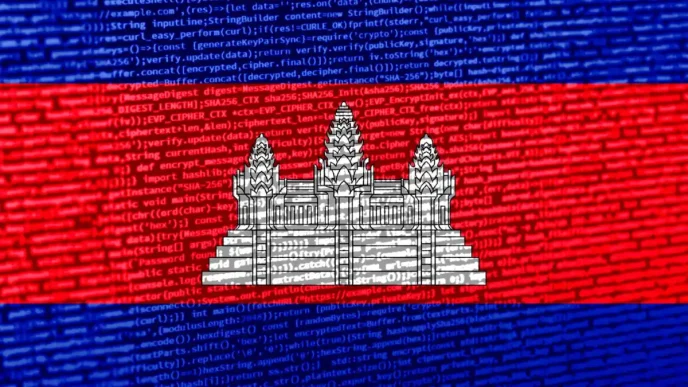As spring sweeps across Vietnam, the nation comes alive with the vibrant energy of traditional festivals, where wrestling matches and boat racing events take centre stage. These age-old practices, deeply rooted in the country’s cultural heritage, are more than just sports; they are a celebration of community, resilience, and history, drawing thousands of locals and visitors alike to rural arenas and riverbanks.
From the wrestling grounds of Sình Village in Huế to the dragon boat races of Tây Tựu Ward in Hanoi, these festivals encapsulate the spirit of Vietnam’s past while fostering a sense of unity in the present. They also serve as a breeding ground for talent, with many athletes rising from village competitions to international acclaim, showcasing the enduring relevance of these traditions in modern times.
A Wrestling Renaissance in Spring
In villages across Vietnam, the rhythmic beat of drums signals the start of wrestling tournaments, a cherished pastime that dates back centuries. Historically, wrestling was a beloved activity among Vietnamese peasants, often featured during spring celebrations and the Tết (Lunar New Year) holiday. A festival without wrestling would be deemed incomplete, as it embodies the strength and determination of rural communities.
In Hanoi’s suburban districts like Hoài Đức, Quốc Oai, and Sơn Tây, wrestling tournaments flourish throughout the spring. The recent Ngô Sài Village tournament in Quốc Oai drew numerous competitors, while the Cát Quế event in Hoài Đức boasted over 100 athletes from across the capital. The Traditional Wrestling Festival of Mai Động Ward in Hoàng Mai District, held from the fourth to the sixth day of the Lunar New Year, stands as a cultural cornerstone, uniting communities in a shared reverence for history.
Beyond the capital, the Sình Village wrestling festival in Huế, with over 400 years of tradition, attracts thousands of spectators. Similarly, Bùng Village in Thạch Thất District, just 20km from central Hanoi, draws nationwide attention for its festive spirit and its role in nurturing professional wrestlers. Athletes like Phùng Khắc Hùng and Cấn Tất Dự, hailing from Bùng Village, have earned international medals for both Hanoi and Vietnam’s national teams.
Phạm Xuân Tài, deputy director of the Hanoi Department of Culture and Sports, highlights the significance of wrestling as a vital part of national heritage. “Each match is not merely a contest of skill but a celebration and preservation of our nation’s traditional sports,” he notes. This sentiment resonates with wrestlers like Cấn Tất Dự, who grew up in Bùng Village and now takes pride in a professional career that includes gold medals in five SEA Games. “We, the young generation, always want to preserve the wrestling tradition of our homeland,” Dự affirms.
These village festivals have even captured international attention, with competitors like Belarusian wrestler Zakhar Dzmitrychenka making an impression in Hanoi tournaments due to his striking presence. The growing visibility of such events underscores their potential to bridge cultural divides while honouring local customs.
Boat Racing: A Riverine Legacy
Alongside wrestling, boat racing emerges as another springtime spectacle, steeped in over a millennium of history. Recorded in Vietnamese annals since the time of King Lý Thái Tổ, who moved the capital to Thăng Long (modern-day Hanoi), boat racing reflects the nation’s deep connection to its rivers and waterways. Ancient bronze drums unearthed in northern Vietnam, dating back over 3,000 years, bear intricate carvings of rowers moving in unison, a testament to the sport’s enduring legacy.
Originally a form of military training to build endurance and solidarity among naval troops, boat racing evolved into a communal celebration, often tied to rituals praying for bountiful harvests in riverine and coastal villages. Historical figures like Ngô Quyền and Trần Hưng Đạo cemented the importance of naval prowess through their victories, while King Lê Thái Tổ’s emphasis on training at Lục Thủy Lake (now Returned Sword Lake in Hanoi) further embedded the sport in national consciousness.
Today, boat racing festivals unfold across the country, from the Bạch Hạc area of Việt Trì City in Phú Thọ Province to the Đăm Boat Racing Festival in Tây Tựu Ward, Hanoi, recognised as a national intangible cultural heritage. These events often coincide with sacred ceremonies honouring local deities, with dragon boats playing a central role in both processions and competitions. In riverside villages, the sport links the spiritual with the celebratory, as seen in festivals on Cát Bà Island, where seafarers pray to Nam Hải Đại Vương, the sea god, for protection.
Nguyễn Thị Hằng, a member of the Đại Lâm Village boat racing team in Bắc Ninh Province, captures the essence of the sport. “The feeling of holding the oars, immersing myself in the water, and striving alongside my teammates to reach the finish line is indescribable. For us, victory goes beyond just taking first place; it embodies the solidarity and pride we feel in preserving our homeland’s traditions,” she says.
Preserving Traditions in a Modern Era
Both wrestling and boat racing are more than mere entertainment; they are vital threads in Vietnam’s cultural tapestry, fostering values of strength, unity, and perseverance. Tạ Tùng Đức, head of the Wrestling Department at the Sports Authority of Vietnam, stresses the importance of nurturing these local traditions. “Athletes from regions with a rich wrestling culture tend to excel quickly, as they have been exposed to the sport from a young age,” he explains. “Preserving and developing the local wrestling movement is essential, especially for attracting youth participation.”
This focus on preservation is evident in the success stories of athletes like Phí Hữu Tình from Quốc Oai, who secured Vietnam’s only wrestling victory at the 1980 Summer Olympics, and Nguyễn Thị Lụa, also from Quốc Oai, who made history at the Olympics in 2012 and 2016. Their journeys from village arenas to global stages highlight the potential of these festivals to inspire and cultivate talent.
As Vietnam modernises, the challenge lies in balancing the preservation of these traditions with the demands of a changing society. Yet, the enduring popularity of wrestling and boat racing festivals suggests that these cultural practices remain integral to national identity. They serve as a reminder of the resilience and communal spirit that have defined Vietnam through centuries of change.
In villages and cities alike, the cheers of spectators and the rhythm of drums and oars continue to echo, celebrating a heritage that binds generations together. As spring unfolds, these festivals not only honour the past but also inspire future champions to carry forward the proud legacy of Vietnam’s traditional sports.














